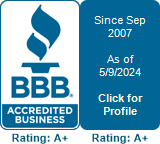Is Your Business Taking Advantage of These Tax Deductions?

The federal and state governments permit businesses to write off many of their expenses as tax deductions. If you run a business, here are some specific deductions that your business might be able to lower its tax liability with.
Driving Done for Business Purposes
If you use a vehicle for business purposes, you can write off the mileage that you cover as a tax deduction. The miles that you can write off don't include commuting from your home to your primary place of business, but any other driving done for work can count.
There are two ways you can claim your business mileage as a business tax deduction. If you'd like, you can keep track of your actual vehicle costs, including depreciation, insurance, maintenance, fuel, and other expenses, and deduct those. Alternatively, you can deduct the federal rate per mile. In 2019, the federal rate will be 58 cents per mile.
For some businesses, this deduction can be quite substantial. For instance, if you cover merely 20 miles per day of qualified driving, you could write off 100 miles per week. Assuming a two-week vacation annually, 100 miles times 50 weeks would net you a 5,000-mile deduction. At 58 cents per mile, that comes to $2,900.
You should talk with a qualified tax professional to determine exactly what driving you do qualifies for this deduction. You may be surprised how many qualified miles you rack up, though. Running errands, going to meet clients, shipping packages, and lots of other driving normally counts.
Home Office Used for Business
If you keep a home office, the space that's dedicated to your office also qualifies as a business deduction. To qualify, the space must be used exclusively for work. It can't double as your in-home yoga studio or have kids' toys strewn across the floor (unless you teach yoga or work on kids' toys). It also has to be the main place where you work.
As with the mileage deduction, there are two ways to calculate your home office deduction. You can keep track of your real expenses, such as the portion of your mortgage or rent that goes toward the space, and claim those costs. Alternatively, you can claim $5 per square foot on an office that's up to 300 square feet. This comes to a maximum deduction of $1,500.
Although calculating your home office deduction may seem complicated (and can be), going through the math is often worth the effort. If you have a legitimate $3,000 in home office expenses, that could save you anywhere from $300 to $1,110 on your federal tax bill depending on your income bracket. Federal rates for 2019 range from 10 percent to 37 percent.
Insurance Premiums That Protect Your Business
Insurance premiums that protect your business or its assets - and not you personally or your assets - are generally tax-deductible. Because these insure the business against liability, property, and other risks, they're part of your overhead and can be subtracted from your revenues.
Depending on what type of business you have, there are many different commercial insurance policies that you might be able to deduct the premiums for. Some more common types of coverage include:
- General liability coverage
- Commercial auto coverage
- Professional liability coverage
- Commercial umbrella coverage
- Cyber liability coverage
If you need help filing business taxes, contact Quality Bookkeeping Services Inc. about their tax services.













